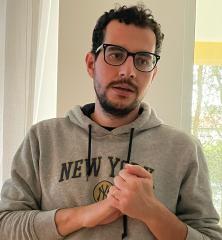
Speaker: Anderson Parra
(He / him / his)
Senior Software Engineer @SeatGeek
Find Anderson Parra at:
Session + Live Q&A
How SeatGeek Successfully Handle High Demand Ticket On-Sales
High-demand online ticket on-sales are a core part of SeatGeek’s business and pose a challenge to delivering a seamless user experience. SeatGeek's ability to handle large amounts of online traffic made the company the preferred ticketing solution for significant teams at the English Premier League. They use SeatGeek’s primary ticketing software, SeatGeek Enterprise, to give supporters a best-in-class buying experience.
For example, the high demand for tickets in a UEFA Champions League Final translates into very high traffic surges on our ticketing platform. Our ability to handle this load has a lot to do with our usage of virtual waiting rooms or online queuing systems. They can help protect a website’s overall user experience by remaining online for a subset of users while the excess traffic is queued (First-In-First-Out). Also, virtual waiting rooms can be applied when the desired feature is that the user should wait their turn to access a protected area of a website.
You will learn how our ticketing systems work and get a deeper understanding of our in-house virtual waiting room – the primary component that allows us to handle these high-traffic ticket on-sales. We will show details of its implementation using Golang and Javascript, both deployed on AWS and Fastly infrastructure.

